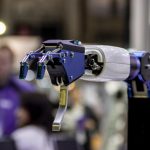 While the trend for doomsday reports about the number of jobs that are set to be automated has abated somewhat in recent times, it’s still a lingering fear for many. A new report from the University of Melbourne provides further evidence for why it’s likely to be a false narrative.
While the trend for doomsday reports about the number of jobs that are set to be automated has abated somewhat in recent times, it’s still a lingering fear for many. A new report from the University of Melbourne provides further evidence for why it’s likely to be a false narrative.
The paper takes particular aim at the famous Frey & Osborne paper that has spawned so many of the dire predictions, both in terms of the methodology used when making the predictions, and the evidence to date in the six years since the research was published.
In terms of the methodology, this has been widely criticized previously, and the Australian team believe it was fundamentally flawed due to its reliance upon technology experts rather than experts in the professions they were holding court over. The provision of a short textual description of the jobs they were rating is scarcely sufficient to provide a detailed understanding of the field and the tasks associated with it.
This lacks a level of nuance that is often crucial to understanding the role. For instance, the authors cite the work of accountants, which often involves interpreting information within accounts. While there are many things that AI is likely to be capable of, there are few people suggesting that interpretation of such data is among them yet, so for accountants, it’s likely to be a change to their role rather than an eradication of it.
Exaggerated expectations
The authors also believe that Frey and Osborne fall into the technology trap and succumb to an exaggeration of its capabilities, even when they themselves admit to its weaknesses. For instance, they cite robotics as an example, and how Frey and Osborne document the difficulties robotics has in manipulating small and sensitive objects at the moment, but then go on to predict that jobs will nonetheless be lost in such tasks in the future. It’s a certainty of technological progression that has tripped many up before them.
While they do attempt to introduce a degree of nuance by claiming that they only believe it feasible that jobs could be lost rather than inevitable, even this rudimentary level of nuance was often lost in the reporting. As with so many futurists today, the talk was of a future that was all but certain to unfold.
The fragility of the claims is perhaps underlined by the data we have to date over the six years since the study was published. The authors argue that the predictions made by Frey and Osborne don’t share much common ground with the employment we’re seeing in the United States today.
By contrast, economic frameworks that take a more prosaic appreciation of what technology can do, and assume it’s good at routine tasks but poor at more complex tasks, has proven pretty accurate at mapping employment changes over the same timeframe.
While tech utopians argue for the exponential pace of development, it’s perhaps guilty of assuming the big changes are always just around the corner, and of therefore fuelling the hype rather than documenting the reality.
That’s not to say that technology won’t have an impact, just that it’s likely that the reality will be somewhat more nuanced than the initial predictions.